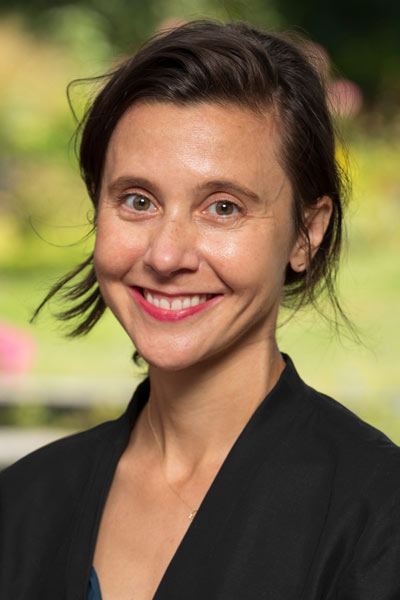How to Read Like A Creature: Language, Labor, and Hard Play in Early English Visionary Writing

Dates: Tuesday, Oct 12, 2021 –
Speaker
Adin E. Lears, PhD, is an assistant professor in the VCU Department of English and an affiliate faculty member in the VCU Department of Gender, Sexuality and Women's Studies. Lears works on the literature of late medieval England—including Geoffrey Chaucer, William Langland, Margery Kempe, and others—as well as the histories of ideas and culture that precede and surround it.
Abstract
This talk extends and interrogates recent literary criticism that frames close reading as a technique of aesthetic experience with radical political potential by offering an extended consideration of how early English visionary writers understood themselves as “creatures” or “created things” as much as creators. In the writing of Julian of Norwich and Margery Kempe, both women's self-designation as creatures is part of a broader emphasis on creative labor in a way that reflects on each text’s orientation to language. In both texts, the term creature troubles a temporality of cause and effect and with it the relationship between creator and created thing, embracing an experience of embodied vulnerability as a creative act. In doing so, both texts respond to and revise the theology of the Fall, which held that human error led to existence in time and in the body, a condition that placed the human in greater proximity to beasts and ultimately necessitated human craft—including language-craft—as a means of addressing postlapsarian deficiency. Embracing such embodied deficiency rather than seeking to re-attain perfection, Julian and Kempe articulate a mode of creaturely reading in which language is a key locus of laborious recreation, requiring a kind of hard play in the aesthetic experience of a text. Like contemporary posthumanist thinking, in particular Donna Haraway’s cyborg feminism, such creaturely reading rejects an elegiac logic of longing for a more “natural” prelapsarian past and offers ways of conceiving of human experience that resist mastery and dominion. At the same time, it integrates the discursive with the material by attending to the materiality of language. In its broadest sense, such creaturely reading amplifies the importance of literary approaches to language and accentuates its potential for making kin across cognitive, bodily, and social bounds.
Event contact: Catherine Ingrassia, cingrass@vcu.edu